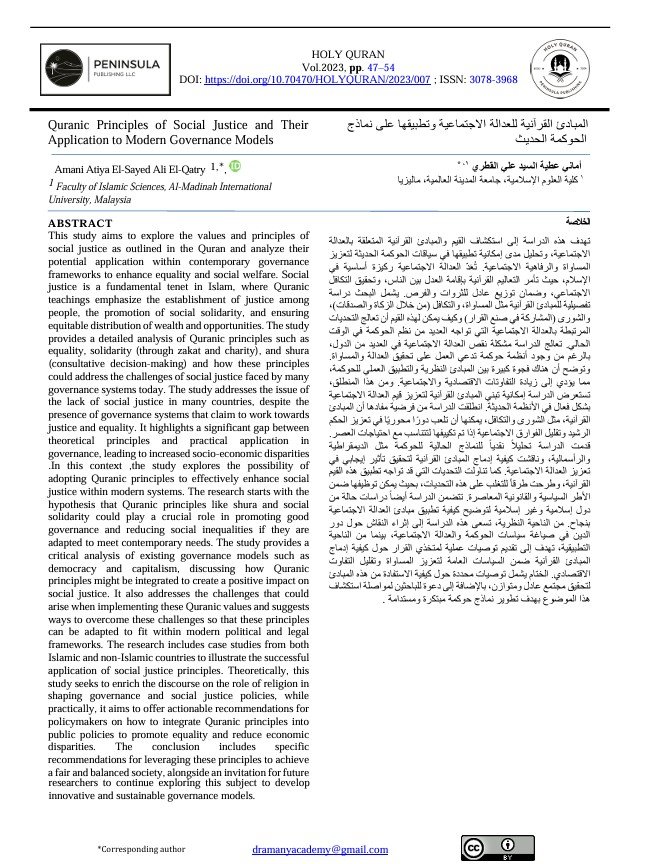Quranic Principles of Social Justice and Their Application to Modern Governance Models
Main Article Content
Abstract
This study aims to explore the values and principles of social justice as outlined in the Quran and analyze their potential application within contemporary governance frameworks to enhance equality and social welfare. Social justice is a fundamental tenet in Islam, where Quranic teachings emphasize the establishment of justice among people, the promotion of social solidarity, and ensuring equitable distribution of wealth and opportunities. The study provides a detailed analysis of Quranic principles such as equality, solidarity (through zakat and charity), and shura (consultative decision-making) and how these principles could address the challenges of social justice faced by many governance systems today. The study addresses the issue of the lack of social justice in many countries, despite the presence of governance systems that claim to work towards justice and equality. It highlights a significant gap between theoretical principles and practical application in governance, leading to increased socio-economic disparities .In this context ,the study explores the possibility of adopting Quranic principles to effectively enhance social justice within modern systems. The research starts with the hypothesis that Quranic principles like shura and social solidarity could play a crucial role in promoting good governance and reducing social inequalities if they are adapted to meet contemporary needs. The study provides a critical analysis of existing governance models such as democracy and capitalism, discussing how Quranic principles might be integrated to create a positive impact on social justice. It also addresses the challenges that could arise when implementing these Quranic values and suggests ways to overcome these challenges so that these principles can be adapted to fit within modern political and legal frameworks. The research includes case studies from both Islamic and non-Islamic countries to illustrate the successful application of social justice principles. Theoretically, this study seeks to enrich the discourse on the role of religion in shaping governance and social justice policies, while practically, it aims to offer actionable recommendations for policymakers on how to integrate Quranic principles into public policies to promote equality and reduce economic disparities. The conclusion includes specific recommendations for leveraging these principles to achieve a fair and balanced society, alongside an invitation for future researchers to continue exploring this subject to develop innovative and sustainable governance models.
Article Details

This work is licensed under a Creative Commons Attribution 4.0 International License.
